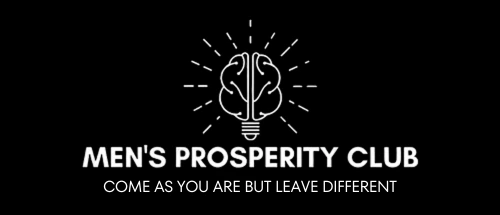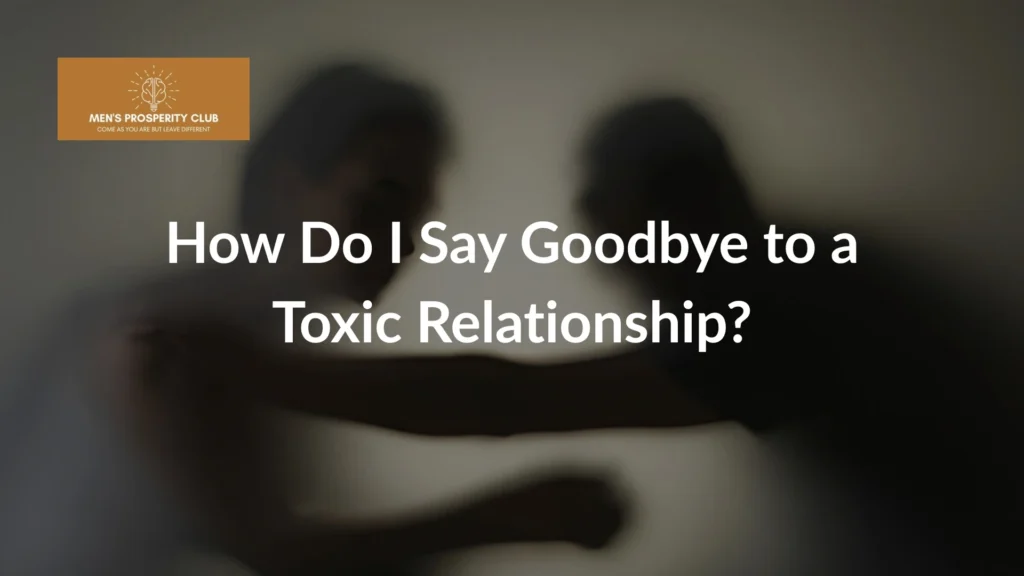How Do I Say Goodbye? Navigating the End of a Toxic Relationship
Ending a toxic relationship is one of the most challenging yet important decisions you’ll make in your life. Whether it’s a romantic partnership, a friendship or a family relationship, knowing when to say goodbye to someone who negatively impacts your life is essential for your wellbeing. But how do you go about it? How can you leave a toxic relationship while preserving your mental health, self-worth and dignity?
In this article, we’ll explore how to recognise a toxic relationship, why it’s crucial to say goodbye, and the practical steps you can take to navigate the process with clarity and confidence. Additionally, we’ll look at how to heal after such a relationship and how to rebuild your life.
What is a Toxic Relationship?
A toxic relationship is characterised by harmful patterns of behaviour that negatively impact one or both individuals involved. These relationships drain emotional energy, often leading to low self-esteem, anxiety, and even depression. While the term “toxic” may seem subjective, the effects of such relationships are undeniable: they leave you feeling emotionally drained, unsupported and unsafe.
Common signs of a toxic relationship include:
- Constant Criticism: Instead of offering constructive feedback, you’re constantly belittled, humiliated or put down. Nothing you do is ever good enough.
- Manipulation: The other person uses guilt, shame or fear to control your actions, thoughts and feelings, often distorting reality to get their way.
- Lack of Support: A toxic partner provides little to no emotional support when you need it most. They may invalidate your feelings, dismiss your struggles, or fail to offer help when it’s needed.
- Unresolved Conflict: Arguments never seem to get resolved. Instead, they fester, creating resentment and anger that only grows over time.
- Controlling Behaviour: Your partner tries to control aspects of your life, such as your social circle, what you wear, or where you go, making you feel like you’re walking on eggshells.
- Emotional Abuse: This includes tactics such as gaslighting, constant undermining, and emotional neglect. Over time, you may feel as though you’re losing touch with reality or your self-worth.
Recognising these signs early on can help you identify when a relationship is toxic before it gets too emotionally damaging.

Why is It Important to Say Goodbye to a Toxic Relationship?
Toxic relationships can have a profound impact on your mental, emotional, and physical health. They create an unhealthy environment where personal growth, happiness, and mutual respect are not possible. Here are some reasons why it’s essential to let go:
- Preserving Your Mental Health: Constant exposure to negativity can lead to depression, anxiety, or feelings of worthlessness. These emotions can overwhelm you, making it difficult to function in everyday life.
- Reclaiming Your Personal Power: Toxic relationships often leave you feeling powerless and as though your needs and desires don’t matter. Saying goodbye restores your sense of self and empowers you to regain control of your life.
- Creating Space for Healthy Relationships: Letting go of toxic connections makes room for relationships that nurture and support your growth. Healthy relationships are based on respect, trust, and love – qualities that should be present in all your connections.
- Breaking the Cycle of Abuse: In cases of emotional or physical abuse, leaving a toxic relationship is often the first step towards protecting yourself. Abuse tends to escalate over time, and leaving the relationship is critical for your safety and well-being.
How Do You Say Goodbye to a Toxic Relationship?
Saying goodbye to a toxic relationship is never easy, but it’s possible to do it with strength and clarity. Here are some steps to guide you through this difficult process:
1. Acknowledge the Need to Let Go
The first and most crucial step is to acknowledge that the relationship is toxic and that it’s no longer serving your best interests. This can be incredibly hard, especially if you’ve invested a lot of time, energy, and emotions into the relationship. But recognising the toxicity is essential for your well-being.
Start by honestly assessing the relationship. What does it do to you? Do you feel worse about yourself when you’re around this person? Are you more anxious, insecure, or drained? If the answer is yes, it’s time to seriously consider ending the relationship.
2. Prepare for the Conversation
Once you’ve made the decision to leave, it’s important to mentally prepare for the conversation. How you approach this depends on the type of relationship. In a romantic relationship, it may involve an honest, calm discussion explaining your reasons. In friendships or family relationships, you may have to be less direct if you fear negative consequences.
Here’s how to prepare:
- Stay Calm: Don’t let anger or frustration dictate the tone of the conversation. Try to stay composed and clear-headed.
- Be Honest: It’s essential to be open about your feelings. Avoid blaming the other person, but express your need for separation.
- Set Expectations: Make it clear that you intend to end the relationship and that no further contact will be necessary.
- Be Prepared for Pushback: Toxic individuals often resist the end of a relationship and may try to manipulate you into staying. Prepare for emotional responses or attempts to guilt-trip you.
3. Set Firm Boundaries
Toxic people may try to convince you to stay or manipulate your decision. It’s crucial to establish firm boundaries and stick to them. This might mean cutting off communication entirely, blocking them on social media, or avoiding situations where you may cross paths.
Setting boundaries isn’t just about ending the relationship. It’s about reclaiming control over your life and your emotional well-being. Don’t feel guilty for setting boundaries that protect you.
4. Detach Emotionally
One of the most challenging aspects of leaving a toxic relationship is emotionally detaching from the other person. You may feel guilty, sad, or confused, especially if you’ve shared a lot of time together. However, your emotional health must come first.
Start by focusing on yourself. Journal your feelings, talk to a therapist, or confide in a supportive friend. Detaching emotionally may take time, but it’s necessary for your healing.
5. Seek Support from Trusted Individuals
Ending a toxic relationship can be a lonely process, but you don’t have to do it alone. Lean on trusted friends, family, or even a therapist to help guide you through the process. A strong support system will remind you of your worth and help you stay grounded in your decision.
If your partner has isolated you from friends or family, it may feel difficult to reach out. However, your true friends will understand, and their support will be invaluable.
6. Give Yourself Time to Heal
Once you’ve said goodbye, it’s important to give yourself time to heal. The end of a toxic relationship can be emotionally scarring, and recovery won’t happen overnight. Use this time to focus on self-care and rediscover the things that bring you joy.
Do things that make you feel good about your own self-worth. Give yourself permission to heal at your own pace, whether that means resting, reconnecting with supportive friends, or rediscovering old hobbies. Be gentle with yourself during this process, allowing ample time for recovery.
7. Move Forward and Learn from the Experience
Once you’ve healed, take time to reflect on what you’ve learned from the experience. Understanding the signs of toxicity and recognising your worth will help you avoid similar relationships in the future. Moving forward, you’ll be better equipped to build healthier relationships based on mutual respect, understanding and support.

How to Avoid Getting into a Toxic Relationship in the Future
After leaving a toxic relationship, it’s essential to focus on building healthier relationships moving forward. Here are some steps to ensure you don’t fall back into a toxic pattern:
- Trust Your Instincts: If something feels off, trust your gut. Don’t ignore red flags, even if they seem small at first.
- Set Clear Boundaries: Know what you will and won’t tolerate in relationships. Setting boundaries early on can prevent toxic behaviour from taking root.
- Prioritise Self-Worth: surround yourself with positive people who will help and support you. You should have enough respect for yourself to end relationships that don’t fit with your values.
- Take Time Before Entering a New Relationship: Give yourself time to heal and reflect before entering a new relationship. This period of self-reflection will help you identify what you truly need in a healthy relationship.
Healing After a Toxic Relationship: How the Men’s Prosperity Club Can Help You Move On
When leaving a toxic relationship, having the right support system is crucial for your recovery and personal growth. The Men’s Prosperity Club (MPC) is a resource designed to help men rebuild their lives after challenging experiences, including toxic relationships. Here’s how MPC can assist you in moving forward:
1. Building a Strong Support System
One of the most valuable aspects of the Men’s Prosperity Club is the community. When you’re navigating the emotional aftermath of a toxic relationship, it can be incredibly helpful to have access to a network of like-minded individuals who understand what you’re going through. MPC fosters a supportive and non-judgmental space where men can share their struggles and receive emotional encouragement.
- Peer Support: By interacting with other members, you can exchange stories, learn from others’ experiences, and gain new perspectives on your own situation.
- Mentorship: Many members of MPC have gone through personal challenges themselves, and they offer mentorship to those who need guidance on rebuilding their lives after a toxic relationship. Mentors can help you regain your confidence and focus on your personal growth.
2. Personal Development and Self-Improvement
MPC focuses on empowering its members through personal development, which can be especially valuable after leaving a toxic relationship. They offer a range of resources designed to help you rediscover your purpose, boost your self-esteem and develop healthier habits moving forward.
- Workshops and Seminars: Attend workshops that focus on rebuilding self-worth, emotional intelligence, and relationship skills. These resources can teach you how to handle relationships more effectively and how to avoid falling into toxic patterns in the future.
- Goal Setting and Accountability: The club encourages its members to set both short-term and long-term goals, which can help you regain a sense of direction and purpose after a challenging relationship. Setting personal goals and achieving them can increase your self-confidence and give you something positive to focus on.
3. Coaching and Professional Guidance
MPC offers coaching services to support you in personal and professional development. Life coaches can provide the structure and advice you need to make informed decisions and stay on track during the healing process.
- Life Coaching: Coaches help you reflect on your past experiences, understand the lessons learned, and chart a new course forward. Whether you’re dealing with feelings of guilt or focusing on rebuilding your life, coaching can help you develop a strategy for moving ahead.
- Mental Health Support: MPC recognises that emotional recovery is essential after a toxic relationship. They can connect you with mental health professionals or counsellors to work through any lingering trauma or emotional challenges.
4. Financial Independence and Empowerment
Toxic relationships can sometimes impact your financial stability. MPC can help you regain control of your finances and build independence, which is especially empowering as you move on from a toxic situation.
- Financial Coaching: MPC provides resources to improve your financial health, whether it’s budgeting, saving, or investing. Financial stability can lead to increased confidence and independence as you move forward in life.
- Career Development: MPC can support you in rethinking your career path, whether you’re looking to make a career change or need guidance in navigating professional challenges after a toxic relationship.
5. Rebuilding Your Social and Personal Life
A toxic relationship can leave you feeling isolated and disconnected. MPC provides opportunities to reconnect with friends, build new relationships, and develop social skills that promote healthier, more supportive connections.
- Social Events: The club hosts social events where you can meet new people in a relaxed and supportive environment. Engaging in these activities helps you expand your social network and build positive relationships moving forward.
- Personal Relationships Coaching: MPC can help you understand healthy relationship dynamics and offer guidance on how to build strong, respectful connections in the future.
6. Building Resilience and a Growth Mindset
After a toxic relationship, building resilience is key to moving on and avoiding future pitfalls. MPC encourages its members to embrace a growth mindset—seeing setbacks as opportunities for personal growth.
- Mindset Shift: MPC teaches techniques to develop resilience and maintain a positive outlook, even in difficult situations. This mindset will help you learn from the past, avoid repeating mistakes, and face future challenges with confidence.
- Self-Compassion: MPC promotes practices that help members develop self-compassion, which is essential for healing after a toxic relationship. Recognising your worth and treating yourself with kindness is crucial for emotional recovery.
Final Thoughts
Saying goodbye to a toxic relationship is a transformative and empowering decision. The Men’s Prosperity Club (MPC) can provide valuable resources and support as you move forward. Through emotional support, coaching, personal development, and a focus on financial and social empowerment, MPC can help you reclaim control over your life and build a prosperous future.
With the right guidance and a commitment to self-improvement, you can leave the past behind and create a healthier, more fulfilling life for yourself.




